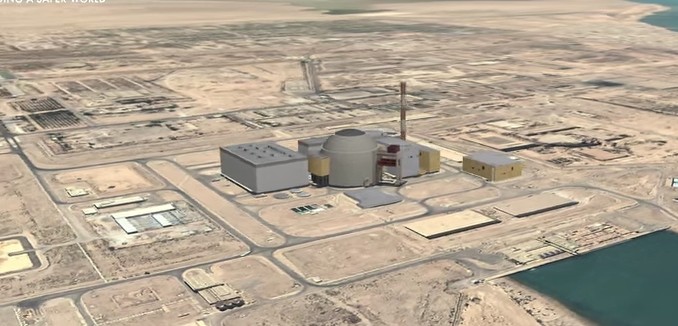Matthew Kroenig, a former Defense Department official in both the Bush and Obama administrations, argued in an article published today in Tablet that the nuclear deal with Iran currently being pursued by the Obama administration, which will allow Iran to maintain its capacity for uranium enrichment, is an abandonment of a “70-year-old bipartisan mainstay of U.S. nonproliferation policy.”
According to Kroenig, Iran’s claim that the Nuclear Nonproliferation Treaty (NPT) gives it a “right” to enrich uranium is false, and the “United States has never interpreted Article IV as providing an inalienable right to sensitive nuclear technologies.” The NPT only gives member states the “inalienable right to peaceful nuclear technology.”
I personally worked on nuclear issues both in and out of government (including at the Pentagon and other agencies) for over a decade, and I and many of my colleagues had always assumed that the only way to prevent nuclear proliferation in Iran would be to eliminate its uranium enrichment capability. For over a decade, U.S. policy reflected this assessment. Throughout the 2000s, the Bush Administration engaged in international negotiations with Iran, but its bottom line never changed: The only deal worth having was one that stopped enrichment in Iran. Senator and U.S. presidential candidate Barack Obama also supported this goal, saying at a 2007 meeting of AIPAC, “The world must work to stop Iran’s uranium-enrichment program.”
The policy that both Democratic and Republican presidents and presidential candidates have supported for the past seven decades is a sensible compromise that encourages the peaceful uses of nuclear technology while managing its proliferation dangers: Countries can operate nuclear reactors for power or research purposes, but they are not permitted to make their own fuel. The vast majority of countries on Earth with nuclear programs do not possess sensitive nuclear facilities. Rather the fuel is provided by a more advanced nuclear power, such as Russia, France, or the United States. This eliminates the need for the spread of dangerous enrichment or reprocessing programs to new countries. Countries like Iran that insist on developing their own sensitive technologies for “peaceful purposes,” therefore, are tipping their hand and revealing a likely intention to build the bomb. …
The strength of the United States’ nonproliferation approach can be seen in the vast majority of countries that never attempted to develop sensitive nuclear technologies, but when these measures were not enough, Washington went to work on a case-by-case basis to put an end to sensitive nuclear programs, even taking the gloves off in standoffs with friends. In 1975, when Germany planned to build enrichment and reprocessing plants for Brazil in the so-called nuclear “deal of the century,” Washington intervened to slow and eventually kill the deal. In the late 1970s, it also convinced France to cancel the sale of a plutonium reprocessing plant to Pakistan and in 1985 it blocked the transfer of reprocessing technology from Argentina to Libya. When U.S. allies Taiwan and South Korean began reprocessing programs in the late 1970s, the United States threatened to withdraw America’s security guarantee if the programs continued and the countries relented. As one Taiwanese scientist said, “After the Americans got through with us, we wouldn’t have been able to teach physics here on Taiwan.” In a 2008 nuclear deal with the United Arab Emirates, Washington developed a new “gold standard” for peaceful nuclear cooperation, requiring that in exchange for American nuclear assistance Abu Dhabi agree to forswear any future enrichment and reprocessing regardless of the source of the material.
The administration’s approach to Iran, which would allow it to maintain enrichment capacity, could only “be rationalized” if its goal was to “manage Iran’s entry into the nuclear club.” But President Barack Obama is promoting the deal as a means to prevent Iran from developing a nuclear weapon. In fact, Kroenig argued, such an approach would only make such a weapon “more likely.”
The broader problem with the deal is that “it will be impossible for Washington to argue that it trusts Iran with sensitive nuclear facilities but not its friends and allies.”
The proliferation risk inherent in the emerging deal has previously been articulate by former International Atomic Energy Agency deputy director general Olli Heinonen, who observed in April that the terms of the deal with Iran could prompt American allies, including South Korea and the United Arab Emirates, to seek permission to enrich uranium.
[Photo: Nuclear Threat Initiative / YouTube ]




